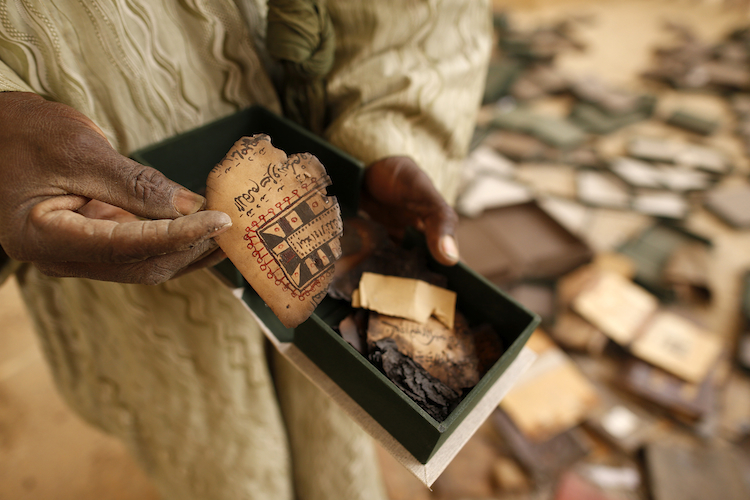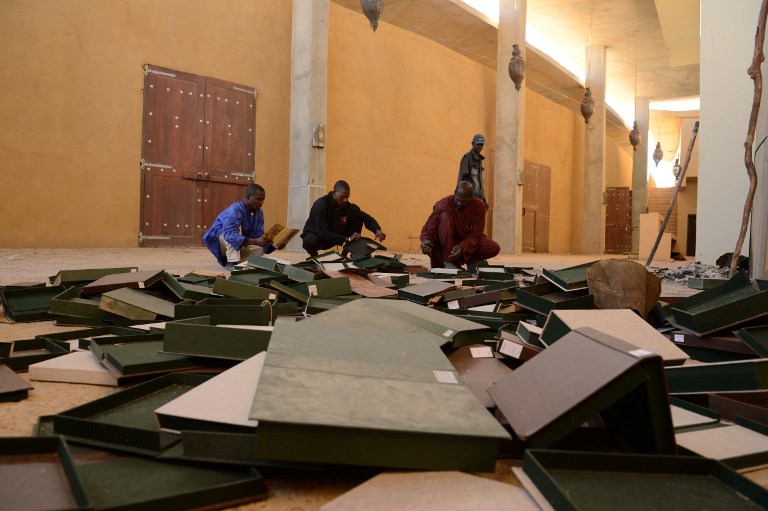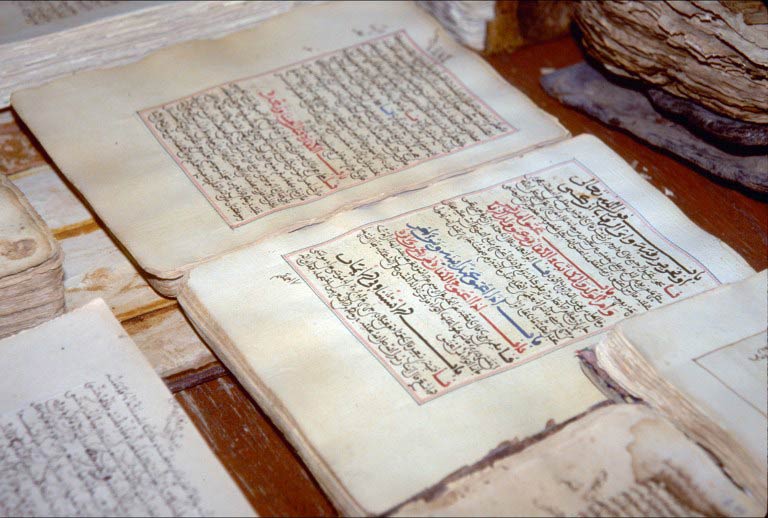Dr Mohamed Diagayeté is in an agitated state as he stands in front of stacks of green metal cases containing thousands of invaluable ancient manuscripts from the fabled medieval city of Timbuktu, northern Mali. “Bamako is the worst; it is hell,” he says in halting English.

The senior researcher of the state-run Ahmed Baba Institute is not referring to the traffic or Bamako’s urban sprawl, but its climate, particularly the humidity, along with the dust, termites and even mice that threaten this literary treasure trove smuggled out of Timbuktu last year under the noses of jihadists.
When Timbuktu, a centre of Islamic learning between the 13th and 17th centuries, fell into the hands of Tuareg separatists and Islamists last year, researchers at the institute – named after a 16th-century intellectual – feared for the safety of the 40 000 manuscripts in its possession.
In a daring act of subterfuge, the institute’s researchers spirited thousands of documents, covering subjects such as religious studies, mathematics, medicine, astronomy and music to Bamako, the capital, more than 965km away.
Metal cases were brought surreptitiously to the desert city of Timbuktu, where the documents, some dating to the ninth century, were carefully packed away. Then, over a period of months, the material – mostly written in Arabic, but also centuries-old texts in Greek, Latin, French, English and German – was smuggled out on buses, cars or pirogue boats to the south on the Niger River. Guards at the institute, drivers and boatmen were the unsung heroes in this enterprise. Some 25 000 documents were taken away from the institute between June and October last year, as well thousands of others from private homes.
It was just as well. In a fit of pique and cultural vandalism comparable to the destruction of the Buddhist statues at Bamiyan in Afghanistan, the Islamists set fire to the institute’s two libraries containing the manuscripts before the arrival of French forces. Last week, a suicide attack was carried out near the Djingareyber mosque in Timbuktu, which is on the world heritage list of the UN Educational, Scientific and Cultural Organisation (Unesco).
According to Drissa Traoré, head of documentation at the institute, thousands of valuable manuscripts were lost, some destroyed, others stolen.

The saved manuscripts are being stored in a nondescript, two-storey faded-rose house in an alley off a main road in the capital. The house stands near an unfinished building, there is rubbish strewn outside on the red dirt road. On a wall around the corner someone has scrawled “empire du mafia”.
The location is not publicised, and visitors are vetted by the institute’s head, Dr Abdoulkadri Maïga, who works elsewhere in a cluttered office with a small fridge by his side. He says there are about 100 000 genuine manuscripts, some owned by the institute, others privately owned by families, although some estimates put the number at 300 000. Many of the privately owned papers were also taken to Bamako.
After Maïga is satisfied, visitors are dispatched to follow a motorbike driver to the documents. The cases are piled on top of each other in a small air-conditioned room to protect them from Bamako’s humidity. Gingerly, Traoré takes out an 18th-century manuscript on jurisprudence from the top of a case. The battered leather cover is falling apart. He opens the book to reveal exquisitely delicate calligraphy. The oldest manuscript at the makeshift library in Bamako dates to the 12th century.
For Diagayeté and his colleagues, the manuscripts cannot return home fast enough. “Some of us have started to go back, but I can’t say when the manuscripts will go, but we want it to be as soon as possible,” he said.
In the meantime, the manuscripts have to be protected from Bamako’s “hellish” conditions. Researchers have begun cataloguing the documents and placing them in special brown boxes made from cardboard-like material. These boxes arrived in December, followed by the shelves on which to store them. The shelves arrived only a couple of weeks ago, so the documents have languished for months in their metal cases, hardly ideal conditions for such delicate items.
No wonder Diagayeté is exasperated. Part of his frustration is aimed at Unesco, which promised to help the institute. Its director-general, Irina Bokova, said in February that the organisation would do everything possible to safeguard and rebuild Mali’s cultural heritage, which she described as “a vital part of the country’s identity and history and fundamental for its future”.
“Its restoration and reconstruction will give the people of Mali the strength and the confidence to rebuild national unity and look to the future,” she added.
“Unesco was very, very late. Talk is easy, but action is hard,” Diagayeté said.
Three sets of metal floor-to-ceiling shelves have been assembled, and more are being put together. In the long term, there are plans to restore and digitise the manuscripts under a Unesco scheme run by Luxembourg. In the meantime, the institute is adamant that the documents should go back to Timbuktu. “Timbuktu without the manuscripts is without value, and the manuscripts without Timbuktu have no value,” Maïga said.
Mark Tran for the Guardian


